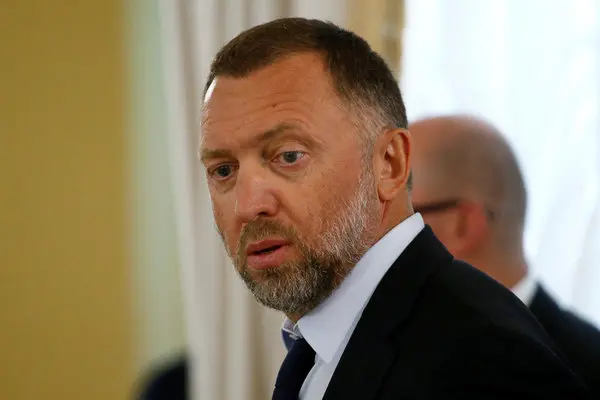WASHINGTON/NEW YORK (Reuters) – Russian tycoon Oleg Deripaska sued the United States today, alleging that it had overstepped its legal bounds in imposing sanctions on his companies and made him the “latest victim” in the U.S. probe into Moscow’s alleged political interference.
In a legal filing, Deripaska asked the U.S. District Court in Washington to block the U.S. Treasury Department from using the “devastating power” of such economic sanctions, which he said were inconsistent with the U.S. Constitution.
Aluminum company Rusal and its parent company En+ were hit with the U.S. sanctions in April 2018 when Washington blacklisted billionaire Deripaska along with several other influential Russians, alleging they were profiting off their ties to Russian President Vladimir Putin and from the state’s “malign activity” around the world.
 Washington dropped the sanctions on Rusal and En+ in January after an intense lobbying campaign in which Deripaska agreed to sell down his stake in En+, relinquishing control over his corporate empire in a bid to stave off its ruin. The sanctions on Deripaska himself remain in force.
Washington dropped the sanctions on Rusal and En+ in January after an intense lobbying campaign in which Deripaska agreed to sell down his stake in En+, relinquishing control over his corporate empire in a bid to stave off its ruin. The sanctions on Deripaska himself remain in force.
A spokeswoman for Deripaska said he had filed the complaint against the Treasury Department in order to not let his hard work be destroyed by “political scheming.” The Treasury Department could not immediately be reached for comment.
The assets that form the core of Deripaska’s fortune were acquired during the chaotic sell-off of state-owned mines and factories in the 1990s, following the collapse of the Soviet Union.
In the lawsuit Deripaska said his net worth had fallen by more than $7.5 billion, or about 81 percent, since the sanctions were imposed.
In sanctioning Deripaska, the United States has cited allegations he had ordered a businessman killed and had links to Russian organized crime – accusations he has repeatedly dismissed as unsubstantiated rumors spread by business adversaries.
“Most of the allegations have been rumored about for more than two decades but remain as unfounded today as they were when first raised,” Deripaska said in the lawsuit.
The deal to lift the sanctions on the companies defied a Democratic-led push in the U.S. Congress to maintain the restrictions. Russia has denied meddling in the 2016 U.S. election.





